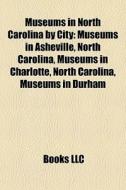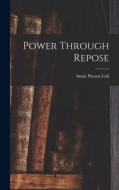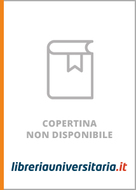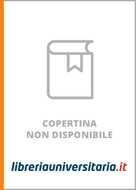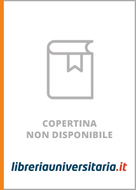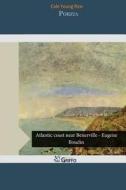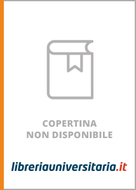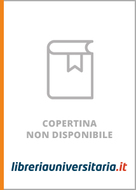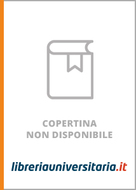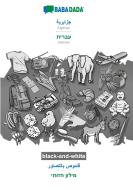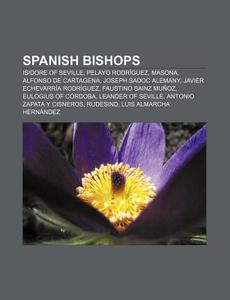
Spanish bishops
Isidore of Seville, Pelayo Rodríguez, Masona, Alfonso de Cartagena, Joseph Sadoc Alemany, Javier Echevarría Rodríguez, Faustino Sainz Muñoz, Eulogius
- Editore:
Books LLC, Reference Series
- EAN:
9781155961552
- ISBN:
1155961552
- Pagine:
- 40
- Formato:
- Paperback
- Lingua:
- Inglese
Descrizione Spanish bishops
Source: Wikipedia. Pages: 37. Chapters: Isidore of Seville, Pelayo Rodríguez, Masona, Alfonso de Cartagena, Joseph Sadoc Alemany, Javier Echevarría Rodríguez, Faustino Sainz Muñoz, Eulogius of Córdoba, Leander of Seville, Antonio Zapata y Cisneros, Rudesind, Luis Almarcha Hernández, Vincente de Valverde, Hosius of Corduba, Pedro de la Gasca, Ángel Herrera Oria, Julian of Cuenca, Fulgentius of Cartagena, Gregory of Elvira, Diego de Covarubias y Leyva, Paul, Fructuosus, Juan Damián López de Haro, Antonio María Javierre Ortas, Alonso Manso, Berenguer de Palou II, Pedro de Aranda, Eutropius of Valencia, Ruy López de Segura, Cristoval Royas de Spinola, Vicente Juan Segura, Fidelis, Francisco Porró y Reinado, Rodrigo Sánchez de Arévalo, Eugenius III of Toledo, Juan Ignacio Arrieta Ochoa de Chinchetru, Alonso Tostado, Taius, José María Martín de Herrera y de la Iglesia, Braulio of Zaragoza, Juan de Quevedo, Gaudiosus of Tarazona, Quiricus, Cresconius of Santiago de Compostela, Josep Climent i Avinent, Gabriel Trejo Paniagua, Ramon Malla Call, Camilo Estevez, Agustín Romualdo Alvarez Rodríguez, Javier Azagra Labiano, Maximus, Ireneo García Alonso, Bernardo Álvarez Afonso, Juan Álvarez de Toledo, Zeno, Juan González de Mendoza, Fray Tomás de Berlanga, Eugenius II of Toledo, Felix, Antonio Vilaplana Molina, Justus of Urgell, Himerius of Tarragona, Diego Ramírez de Guzmán, Arnau of Peralta, Joaquín Abarca, Juan Angel Belda Dardiñá, Raimundo of Roda, Ambrosio Echebarria Arroita, Pedro Agustín, Luis Julian de Milà, Rafael Sanus Abad, Sacerdos of Saguntum, Juan García-Santacruz Ortiz, Sancho II of Huesca. Excerpt: Saint Isidore of Seville (Spanish: or , Latin: ) (c. 560 - 4 April 636) served as Archbishop of Seville for more than three decades and is considered, as the historian Montalembert put it in an oft-quoted phrase, "le dernier savant du monde ancien" ("the last scholar of the ancient world"). Indeed, all the later medieval history-writing of Hispania (the Iberian Peninsula, comprising modern Spain and Portugal) was based on his histories. At a time of disintegration of classical culture, and aristocratic violence and illiteracy, he was involved in the conversion of the royal Visigothic Arians to Catholicism, both assisting his brother Leander of Seville, and continuing after his brother's death. He was influential in the inner circle of Sisebut, Visigothic king of Hispania. Like Leander, he played a prominent role in the Councils of Toledo and Seville. The Visigothic legislation which resulted from these councils is regarded by modern historians as exercising an important influence on the beginnings of representative government. Isidore was born probably in Cartagena, Spain to Severianus and Theodora, members of an influential family who were instrumental in the political-religious maneuverering that converted the Visigothic kings from Arianism to Catholicism. The Catholic Church celebrates him and all his siblings as known saints: Isidore received his elementary education in the Cathedral school of Seville. In this institution,the first of its kind in Iberia, a body of learned men including Archbishop Saint Leander of Seville taught the trivium and quadrivium, the classic liberal arts. Saint Isidore applied himself to study diligently enough that he quickly mastered at least a pedestrian level of Latin, a smattering of Greek, and some Hebrew. Two centuries of Gothic control of Iberia incrementally suppressed the ancient inst...

